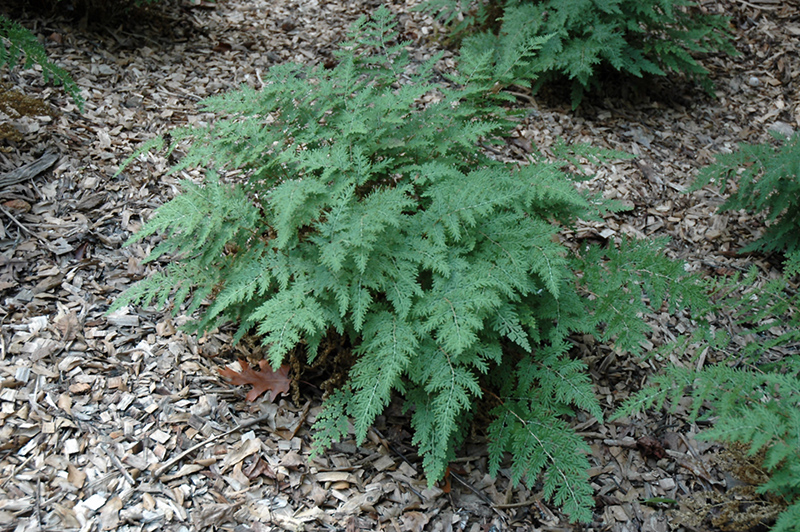Height: 18 inches
Spacing: 20 inches
Sunlight:
![]()
![]()
Hardiness Zone: 5b
Other Names: Arborvitae Fern, Clubmoss, Chinese Lace Fern
Description:
A very attractive fern relative that produces arching clumps of semi-evergreen, fan-like leaves that are deep green; this plant is perfect for shaded moist areas and containers
Ornamental Features
Braun's Spikemoss' attractive ferny leaves remain dark green in color throughout the year on a plant with an upright spreading habit of growth.
Landscape Attributes
Braun's Spikemoss is a dense herbaceous evergreen perennial with an upright spreading habit of growth. Its relatively fine texture sets it apart from other garden plants with less refined foliage.
This is a relatively low maintenance plant, and should not require much pruning, except when necessary, such as to remove dieback. Gardeners should be aware of the following characteristic(s) that may warrant special consideration;
- Suckering
Braun's Spikemoss is recommended for the following landscape applications;
- Mass Planting
- Rock/Alpine Gardens
- Border Edging
- General Garden Use
- Groundcover
Planting & Growing
Braun's Spikemoss will grow to be about 18 inches tall at maturity, with a spread of 24 inches. When grown in masses or used as a bedding plant, individual plants should be spaced approximately 20 inches apart. It grows at a medium rate, and under ideal conditions can be expected to live for approximately 10 years. As an evegreen perennial, this plant will typically keep its form and foliage year-round.
This plant does best in partial shade to full shade. Keep it well away from hot, dry locations that receive direct afternoon sun or which get reflected sunlight, such as against the south side of a white wall. It prefers to grow in average to moist conditions, and shouldn't be allowed to dry out. It may require supplemental watering during periods of drought or extended heat. It is not particular as to soil pH, but grows best in rich soils. It is somewhat tolerant of urban pollution. This species is not originally from North America. It can be propagated by division.

